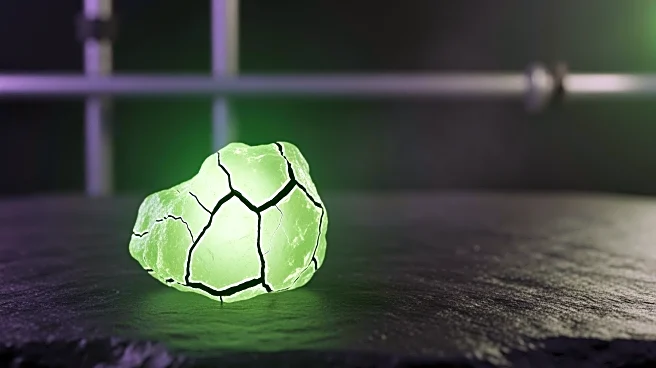What's Happening?
Greenpeace France has released photographs showing containers of spent uranium being loaded onto a cargo ship in Dunkirk, France, destined for Russia. This marks the resumption of uranium trade between
France and Russia after a nearly three-year hiatus. Greenpeace is urging France to cease this trade, citing concerns over dependency on Russia for uranium processing. The trade involves reprocessed uranium being sent to Russia for conversion and re-enrichment, with a portion returned to France for use in reactors.
Why It's Important?
The resumption of uranium trade between France and Russia raises questions about energy dependency and geopolitical relations. Greenpeace's call to end the trade highlights concerns over environmental and safety issues associated with nuclear materials. The trade is significant for France's energy strategy, as it relies on reprocessed uranium for its reactors. The situation also reflects broader discussions on sanctions against Russia's energy sector, which could impact global nuclear trade dynamics.
What's Next?
Greenpeace is advocating for France to disclose the quantity of uranium exported to Russia and to terminate all import and export contracts. The organization is pushing for more aggressive action from the French government to align with President Macron's statements on reducing dependency on Russia. Future sanctions on Russia's energy trade, including nuclear materials, may be considered, potentially affecting international relations and energy policies.











